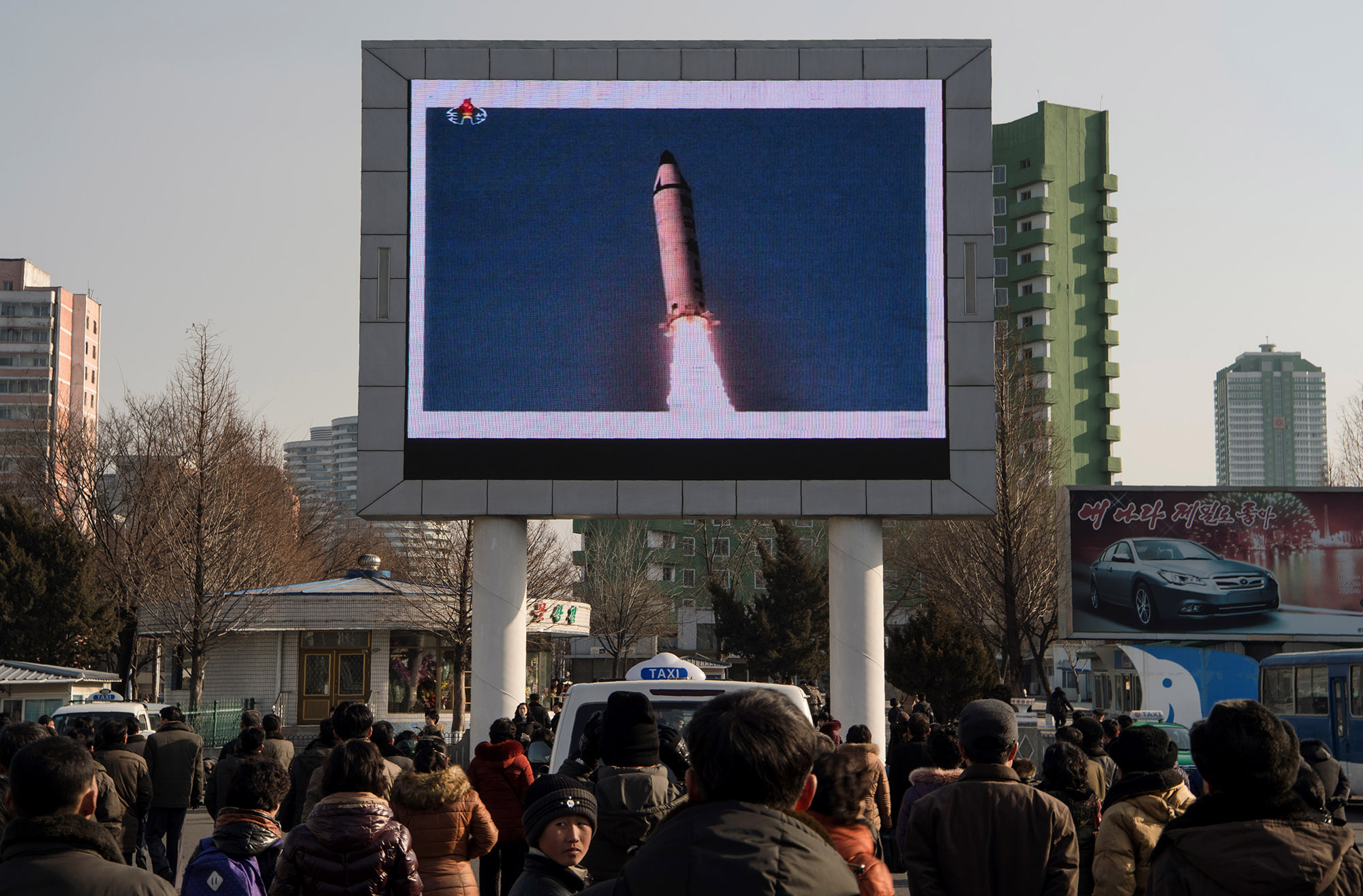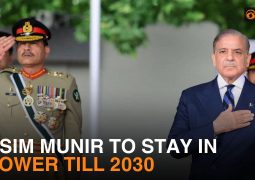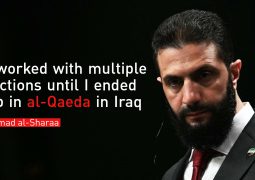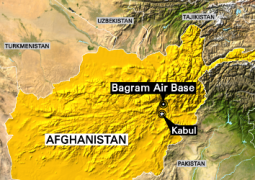What Trump and Duterte Said Privately About the North Korean Nuclear Threat

PRESIDENT DONALD TRUMP repeatedly addressed the possibility of a U.S. nuclear attack on North Korea in a private call last month with Philippine President Rodrigo Duterte, according to a transcript of the call obtained by The Intercept.
“We can’t let a madman with nuclear weapons let on the loose like that. We have a lot of firepower, more than he has times 20, but we don’t want to use it,” Trump told Duterte. (In fact, the U.S. has 6,800 nuclear warheads and North Korea is thought to have about 10.) “You will be in good shape,” he added.
“We have a lot of firepower over there. We have two submarines — the best in the world — we have two nuclear submarines — not that we want to use them at all,” Trump said. “I’ve never seen anything like they are, but we don’t have to use this, but he could be crazy so we will see what happens.”
The call took place on April 29. The transcript, an official Philippine Department of Foreign Affairs document, contains numerous typographical errors. Multiple government sources contacted by the Philippine news outlet Rappler, which collaborated with The Intercept on this story, confirmed its authenticity.
During the call, Trump echoed his publicly stated position that he wants China to take the lead in addressing potential threats from North Korea. “I hope China solves the problem. They really have the means because a great degree of their stuff come [sic] through China,” Trump said. “But if China doesn’t do it, we will do it.”
Duterte then volunteered to call Chinese President Xi Jinping, adding, “The other option is a nuclear blast which is not good for everybody.” Both leaders expressed a preference for avoiding a nuclear confrontation, but nonetheless, Joe Cirincione, president of the Ploughshares Fund and a leading expert on nuclear weapons, was alarmed by the exchange.
“Trump has a disturbing tendency to talk very cavalierly about nuclear weapons — as if he is an impulse away from using them,” Cirincione said. “He doesn’t seem to understand the vast destructive nature of these weapons and the line he would be crossing by using them.”
During the Obama administration, Duterte made clear his disdain for the U.S. president, who he repeatedly called the “son of a whore.” The Obama administration’s measured criticism of Duterte’s murderous war on drugs enraged the Philippine leader. At one point, Duterte threatened to “say goodbye” to a U.S.-oriented foreign policy in favor of a closer alliance with China. Beijing has offered to train Philippine anti-drug forces tasked with carrying out what human rights advocates characterize as an extrajudicial killing campaign.
Duterte welcomed Trump’s election victory. Recently, he has publicly counseled restraint and the de-escalation of tensions with North Korea, even to the point of criticizing the U.S. for its bellicosity. “There seems to be two countries playing with their toys and those toys are not really to entertain,” he said at an April news conference in Manila.
Photo: Kim Won-JinAFP/Getty Images
During the call with Trump, however, Duterte had a different message, emphasizing that the North Korean dictator Kim Jong-un was a “madman.” “He is playing with his bombs, his toys and from the looks of it, his mind is not working well and he might just go crazy one moment,” he told Trump. The two leaders praised each other, and Duterte encouraged Trump to “keep the pressure on” Kim Jong-un while offering to aid Trump in pressing China to bring its influence to bear on North Korea.
Duterte’s public comments, rather than his private ones, are more in line with regional attitudes toward North Korea. North Korea has been saber-rattling for so long that its neighbors have largely decided that ignoring the provocations is the best path forward, a strategy that has been abandoned by Trump.
Earlier this month, amid escalating tensions with North Korea, South Korean voters went to the polls in their presidential election and elected Moon Jae-In — a former human rights lawyer in favor of dialogue and joint economic projects with North Korea.
In his conversation with Duterte, Trump asked for information about the region. “What do you think about China? Does China have power over him?” Trump asked. “What’s your opinion of [Kim Jong-un], Rodrigo? Are we dealing with someone who [is] stable or not stable?”
“He is not stable,” Duterte answered.
The Intercept also obtained a briefing document from the Philippine Department of Foreign Affairs dated several days after the call with Trump, which contains talking points for an upcoming call between Duterte and the Chinese president, Xi Jinping. The document lists as a talking point that Duterte should “call on all parties to exercise restraint and level-headedness to avoid making the situation worse.”
The talking points do not mention Trump.
Disclosure: Omidyar Network is an investor in Rappler, an independent news organization based in the Philippines. The Intercept’s publisher, First Look Media, was founded by Pierre Omidyar.
It was enormously controversial that President Trump placed a friendly call to Philippine strongman Rodrigo Duterte in April. Now, we can read what they said.
AUTHORS – Jeremy Scahill, Alex Emmonsmmons and Ryan Grim
- Previous Mindanao, a Philippines Island, Is Placed Under Martial Law
- Next CPEC may create more India-Pakistan tension: UN report










